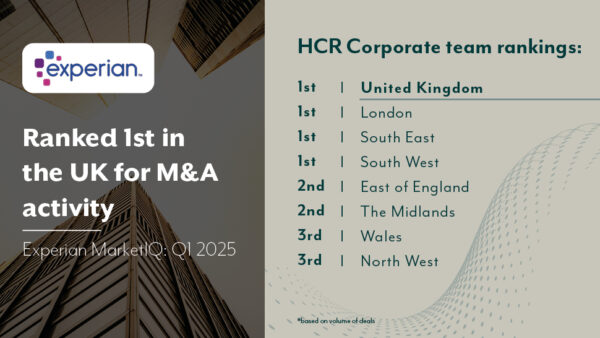
Selling your business to private equity: myths, realities, and the first 100 days
5 July 2024

The purpose of this article is to: help business owners plan and prepare for the sale of their business through an asset or share sale and de-bunk some myths around an exit to private equity (“PE”).
What do we mean when we refer to PE? In simple terms we mean an investment business which pools resources together from institutional investors and high-net-worth individuals, amongst others. This is with a view to acquiring an equity stake in potentially high-growth companies, injecting capital for further growth and then seeking an exit itself in a short timeframe.
PE ‘keeps the lights on’ through a mixture of fee income – a fixed percentage of the funds they manage – and carried interest – an amount due to PE after capital invested and an agreed multiple has been returned to investors.
Prior preparation prevents poor performance
The age old mantra, “fail to prepare, prepare to fail”, rings true in the world of corporate mergers and acquisitions. From the very inception of a new business idea, business owners should consider their exit strategy.
This will help you to formulate your plan and identify certain key practices that will make your business more valuable when you decide to move on to something new or sail off into the sunset.
When planning an exit you should:
- Undertake a due diligence (“DD”) exercise on your own business, adopting a critical eye as if you were looking to buy it. This will help you focus on those areas of particular risk where your business could improve. If you are unsure how to address any issues identified during DD, come and talk to us or your financial advisers to help rectify the situation – remember you only have one chance to make a good first impression
- Consider the steps you could take to incentivise your employees to build loyalty and ensure you retain talent – this is critical for the growth of your business
- Develop a strong management team so your business is able to continue to be successful following your exit. The aim here is to make sure the growth of your business can be sustained without you – this will be of key importance to PE.
What is attractive about a sale to PE?
To analyse what makes a sale to PE attractive we need to first understand the terms and scope of PE.
Below we have set out what we believe to be some of the key advantages an exit to PE can provide over and above a trade sale:
- Opportunity to de-risk your position by taking some equity off the table in exchange for cash
- A more staged exit where you remain actively involved in managing your business to maintain and maximise value. Founder and key management will often ‘roll over’ or reinvest in the investee company – i.e., will retain an equity stake and a role in the management team post-exit
- The benefit of injected capital for growth and working capital and an opportunity to ‘buy and build’ the business through acquisitions
- The chance to create a sophisticated management team with the PE firm. The experience of your chosen PE will often help accelerate the growth of your business, making it more attractive to potential purchasers
- Keeping a degree of control and ‘say’ about your business as opposed to selling to trade where you and the business may become a small cog in a very large machine
- At the time of a future exit you will have the support of the PE firm. PE are well-versed in the trials and tribulations of selling a business and they will clearly have a vested interest in maximising value for your business.
What should I expect in a PE deal?
The process involves rigorous due diligence, financial and market analysis, and valuation to determine the offer price.
The buyout will typically be financed through a mix of equity and debt. Key steps include negotiating deal terms, both sell side and equity, obtaining regulatory approvals, and closing the transaction which in itself can take a significant amount of time.
Post-acquisition, the PE firm often makes wider management changes and implements operational improvements, some of which come from the due diligence they do on the business as part of the deal. This is known as the “100 day plan”.
The PE investor will likely look for an exit within three to seven years via a strategic sale, secondary buyout, or IPO, with the intention of realising a substantial return on investment.
Post-acquisition – the first 100 days
During the first 100 days of a partnership with PE, significant adjustments to a company’s focus and direction typically occur. The initial priority is creating an action plan that outlines key strategic aspects.
Common elements of this plan include talent acquisition and development, needs analysis, budgeting and financial controls, capital structure adjustments, reporting, and tech development.
PE firms emphasise getting the right talent in place, and may bring in new hires from their networks and enhance retention through incentives. They conduct a ‘needs analysis’ to address weaknesses, and set realistic financial projections to guide budgeting and resource allocation.
What does this mean for my business?
Sales to private equity companies have many benefits – from a linear exit plan to ensuring your business is developed by experts who know how to get the best for your business. However, there are important steps you should take when planning to sell to a PE house – due diligence, incentivising employees and developing a strong management team so the business will succeed after your exit.










